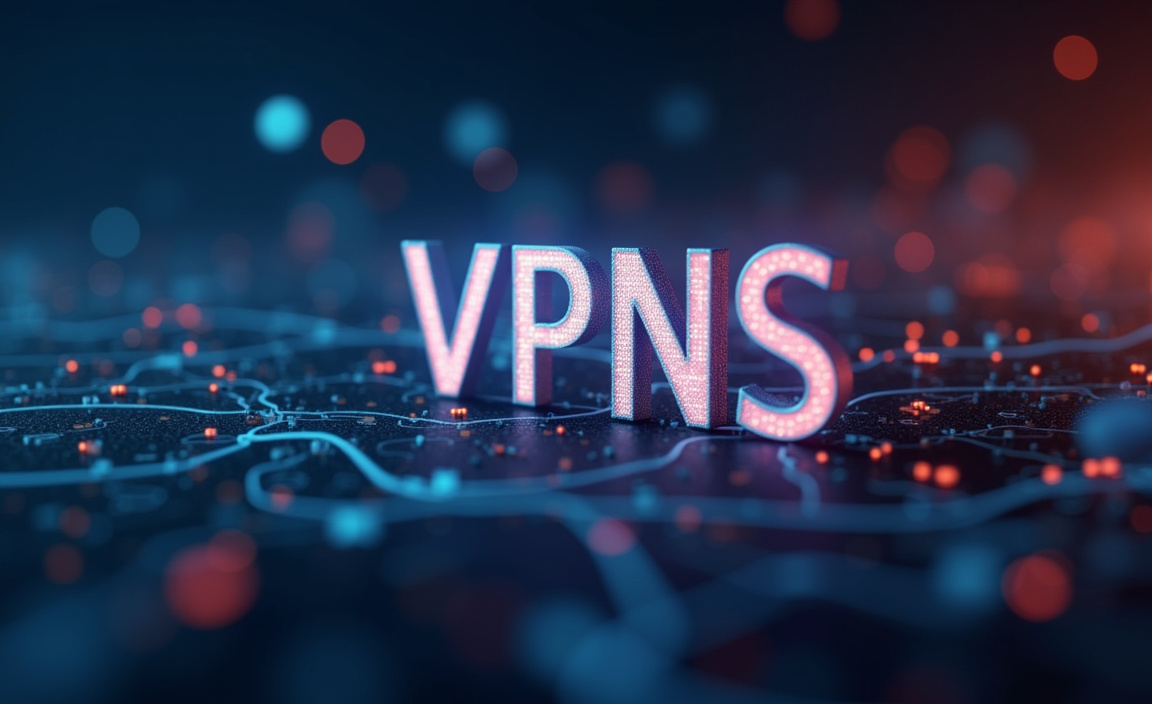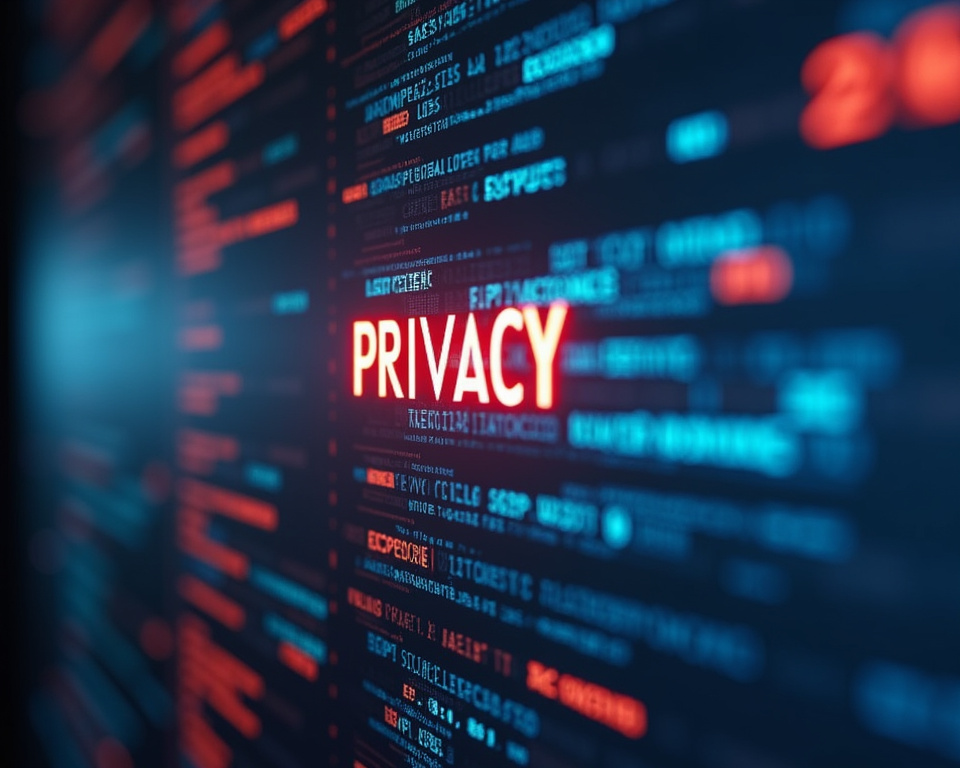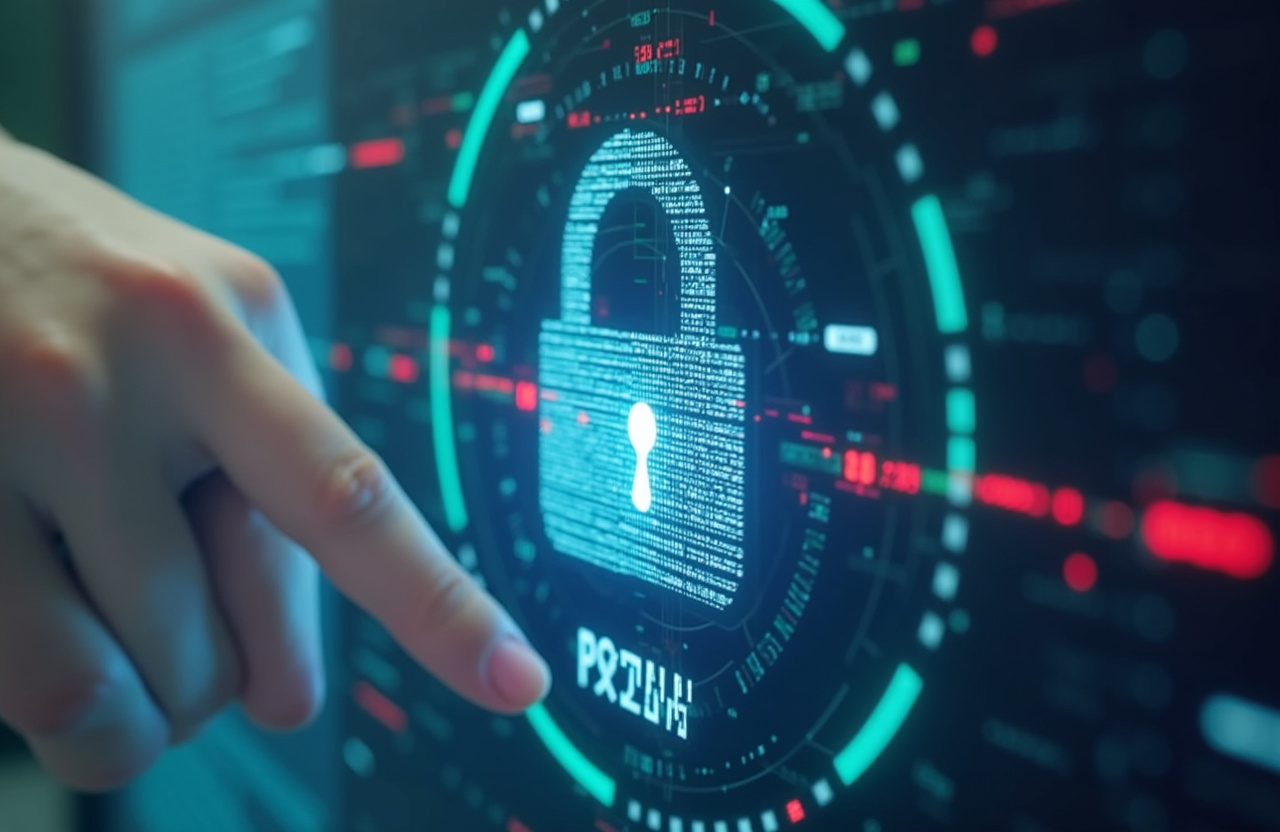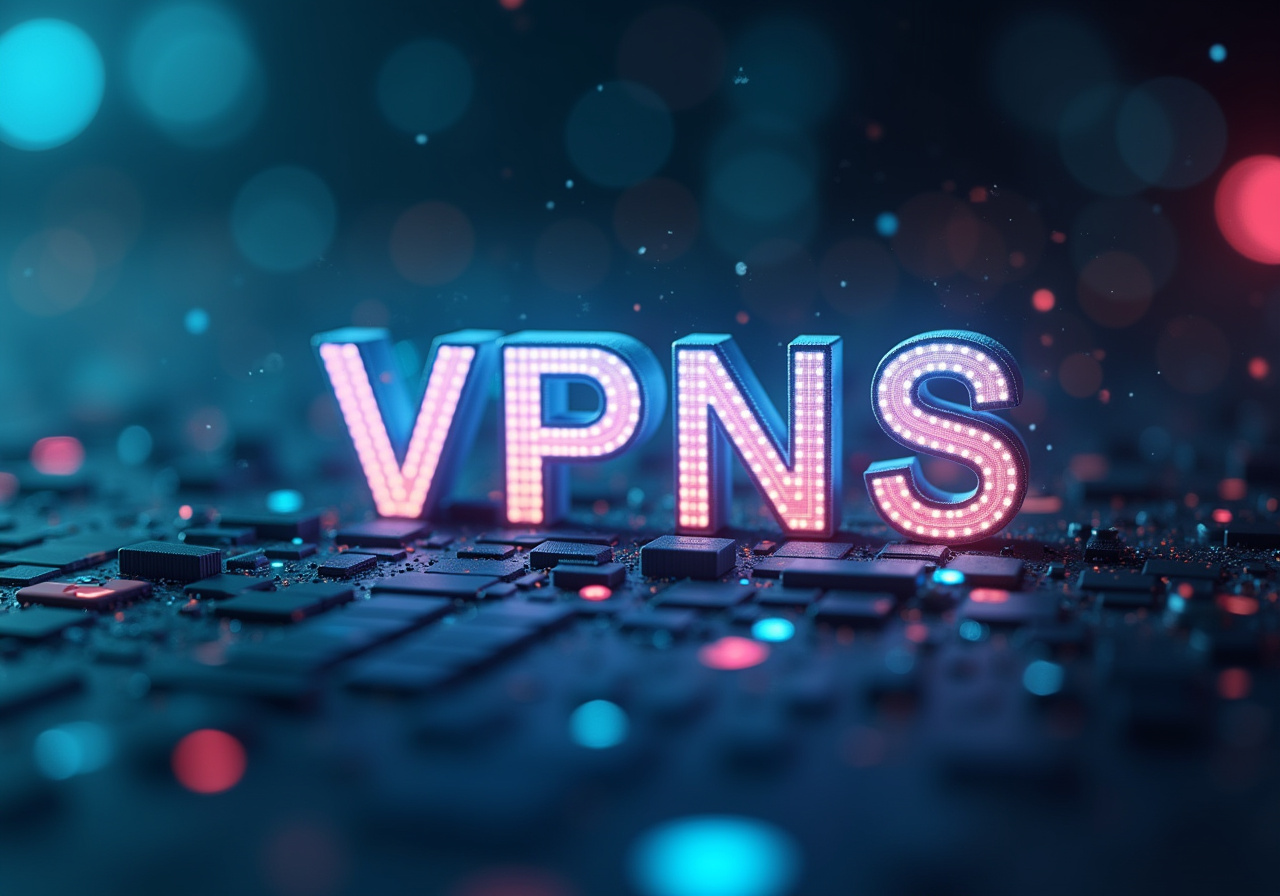VPNs for Broadcast Engineers: Securing Media Content

Table of Contents
VPNs for Broadcast Engineers: Securing Media Content
The digital transformation of the broadcasting industry has ushered in an era of unprecedented creative potential and global reach. However, this exciting evolution has also introduced a complex web of security challenges, demanding a new level of vigilance from broadcast engineers. No longer solely focused on the technical aspects of signal transmission, these professionals are now on the front lines of protecting invaluable media content from an ever-evolving landscape of cyber threats.
This article explores the critical role Virtual Private Networks (VPNs) play in empowering broadcast engineers to secure their organization's most valuable assets. We will delve into how a well-implemented VPN strategy goes beyond simple data encryption, providing a comprehensive framework for production protection, ensuring broadcast integrity, and maintaining a secure environment for the entire media workflow. From securing remote collaborations and protecting sensitive pre-release content to preventing unauthorized access to critical broadcast systems, the power of a broadcast engineer VPN lies in its ability to provide a vital layer of defense against the myriad threats facing the modern broadcasting industry.
Securing media content, therefore, becomes not just a technical task, but a strategic imperative. It's about safeguarding intellectual property, maintaining competitive advantage, and ensuring the trust of viewers who rely on accurate and timely information. A robust VPN solution designed to fortify operations becomes arguably the first, and arguably most important, step.
Within this article, we will illustrate how a properly configured VPN, tailored to the unique demands of a broadcast environment, is an indispensable tool for any broadcast engineer committed to protecting their organization's digital assets. For example, consider a scenario where a production team is collaborating on a new documentary series. Filmmakers are spread across different geographical locations, sharing raw footage, editing drafts, and sensitive financial information.
Without a secure VPN connection, these data exchanges are vulnerable to interception by malicious actors. A hacker could potentially gain access to pre-release content, leak confidential financial details, or even sabotage the entire project by altering critical files. A broadcast engineer VPN acts as secure conduit, ensuring that all data transmitted between team members is encrypted and protected from unauthorized access.
Similarly, imagine a live news broadcast relying on satellite feeds from remote correspondents. If these satellite feeds are not properly secured, they could be vulnerable to signal jamming or interception by competing organizations or even hostile entities seeking to disrupt the broadcast. Employing a VPN to protect these critical communication links ensures that only authorized personnel can access and transmit the satellite signals, maintaining broadcast integrity and preventing potentially damaging interruptions.
In essence, the effective deployment of a VPN solution represents a proactive approach to security. It's about anticipating potential threats and implementing measures to mitigate risks before they can materialize. This requires a thorough understanding of the broadcast workflow, identifying potential vulnerabilities at each stage of the production and distribution process.
It also demands close collaboration between broadcast engineers, IT security professionals, and management to develop and implement a comprehensive security policy that addresses all aspects of media content protection. This policy should clearly define who has access to what content, how data is to be stored and transmitted, and what procedures are to be followed in the event of a security breach. The rise of cloud-based production workflows further underscores the importance of VPNs for broadcast engineers.
These remote workflows rely on connecting to cloud services – often third-party – to store, process, and distribute media content. A VPN secures the connection between the broadcast facility and cloud providers, thereby protecting all data traffic. Securing media content encompasses also protecting data from metadata alteration or deletion, so that accurate records are maintained throughout and after production for potential compliance uses.
Without a VPN, the data exchanged between these different environments is vulnerable to interception and manipulation.
Media content security, a cornerstone of the broadcasting industry, encompasses a wide range of measures designed to protect valuable media assets from unauthorized access, use, disclosure, disruption, modification, or destruction. The importance of media content security cannot be overstated, as breaches can lead to significant financial losses, reputational damage, legal liabilities, and disruptions in service. For broadcast engineers, ensuring the security of media content is a critical responsibility that demands a comprehensive and proactive approach.
VPNs play a pivotal role in strengthening media content security by providing a secure and encrypted tunnel for data transmission, effectively shielding sensitive information from prying eyes. This is especially crucial in today's interconnected broadcast environments, where media content is often transmitted across various networks and locations. The vulnerabilities inherent in these interconnected systems make them susceptible to various cyber threats, including hacking, malware infections, and data interception.
By implementing a VPN, broadcast engineers can mitigate these risks and maintain the confidentiality and integrity of media content. Encryption is the keystone of VPN security. By scrambling data into an unreadable format, encryption makes it virtually impossible for unauthorized individuals to access or understand the information being transmitted.
Modern VPNs employ robust encryption algorithms that meet industry standards and provide a high level of security. Think of AES (Advanced Encryption Standard) 256-bit encryption, for example, commonly preferred, and effectively protecting media content as it travels across public and private networks, ensuring that only authorized users with the appropriate decryption keys can access the data. It’s important to choose solutions that are supported by a wide range of platforms and hardware, to ensure the most cost-effective and highest use, particularly with legacy and new technologies.
However, encryption alone is not enough. Proper authentication mechanisms are also essential for verifying the identity of users attempting to access the VPN. Strong authentication protocols, such as multi-factor authentication (MFA), add an extra layer of security by requiring users to provide multiple forms of identification before gaining access.
This helps to prevent unauthorized access even if a password is compromised. An example being, in addition to a password, a one-time code sent to a user’s mobile device. Beyond encryption and authentication, VPNs also provide valuable features for access control.
Broadcast engineers can configure VPNs to restrict access to specific media content based on user roles and responsibilities. This ensures that only authorized personnel can access sensitive materials. For instance, only the editing team might have access to pre-release footage, while the marketing team has access to approved promotional clips.
A VPN allows for granular control over access rights, minimizing the risk of unauthorized exposure. VPN logging and monitoring capabilities provide valuable insights into VPN usage, helping to detect suspicious activity and identify potential security breaches. By regularly reviewing VPN logs, broadcast engineers can proactively identify and respond to security threats.
This might include detecting unusual login attempts, identifying users accessing restricted content, or flagging suspicious network traffic patterns. Proactive monitoring allows for early detection and response, preventing potential security incidents from escalating into major breaches. In addition to protecting media content during transmission, VPNs can also be used to secure storage locations.
By deploying a VPN between broadcast facilities and remote archives, broadcast engineers can protect archived media content from unauthorized access. This is particularly important for preventing data theft or tampering that could compromise the integrity of the broadcast archive. Implementing a VPN for media content security requires a well-defined strategy that considers the specific needs and vulnerabilities of the broadcast environment.
This strategy should include selecting the appropriate VPN protocols, configuring strong encryption settings, implementing robust authentication mechanisms, and establishing clear access control policies. To ensure broadcast integrity, for example, a broadcast engineer VPN must be configured with protocols that not only encrypt data but also ensure its authenticity and prevent tampering. It also requires regular monitoring and maintenance to ensure the VPN remains effective against evolving cyber threats.
Staying up-to-date with the latest security patches and updates is crucial for maintaining a strong security posture.
Production protection, an essential aspect of media content security, focuses on safeguarding media assets throughout the entire production lifecycle, from initial creation and editing to final delivery and archiving. In the fast-paced and collaborative world of broadcasting, numerous individuals and systems are involved in the production process, making it crucial to implement robust security measures to prevent unauthorized access, modification, or disclosure of sensitive production data. VPNs play a critical role in production protection by providing a secure environment for collaboration and data sharing.
In many cases, production teams are geographically distributed, requiring them to share media files and project data across networks. Unsecured connections can expose these transmissions to various cyber threats, making it imperative to utilize VPNs to encrypt data and authenticate users. A broadcast engineer VPN ensures that production data remains confidential and protected from interception, minimizing the risk of leaks or sabotage.
Consider a scenario where a post-production team is working on a highly anticipated film or series, and sensitive scenes are shared between editors, sound designers, and visual effects artists. These files are vulnerable if transmitted over unsecured networks. A broadcast engineer VPN creates a secure dedicated channel for that traffic.
A robust VPN solution ensures that all data exchanged between team members is encrypted, authenticated, and protected from unauthorized access, preventing pre-release content from ending up online. Modern production workflows increasingly rely on cloud-based services for storage, editing, and collaboration. While cloud platforms offer convenience and scalability, they also introduce new security considerations.
A VPN can create a secure connection between the production facility and the cloud provider, ensuring that all data transmitted to and from the cloud is protected from interception or tampering. This is particularly important for protecting high-resolution media files, project databases, and other sensitive production assets. By using a VPN, broadcast engineers can ensure that cloud-based workflows remain secure and compliant with industry regulations.
In addition to securing data in transit, VPNs can also be used to control access to production resources. A broadcast engineer can configure a VPN to restrict access to specific servers, storage devices, or software applications based on user roles and responsibilities. This ensures that only authorized personnel can access sensitive production assets.
Coupled with strong password policies and multi-factor authentication, VPNs can significantly strengthen access control. Collaboration with external partners, such as freelance editors, composers, or VFX studios, is common in the broadcasting industry. A VPN can provide secure access to production resources for these external collaborators, while isolating them from the internal network.
Broadcast engineers can issue temporary VPN credentials to external partners, granting them access to only the resources they need for their specific tasks. This ensures that external collaborators can contribute to the production process without compromising the security of the entire network. To maximize effectiveness, a broadcast engineer VPN should be integrated with other security measures, such as firewalls, intrusion detection systems, and anti-malware software.
This multi-layered approach provides a comprehensive defense against cyber threats. Broadcasting assets must be guarded from external threats, sure, but a broadcast engineer VPN should ensure that internal systems are safeguarded from each other, and the data strictly segmented per project or department. Broadcast engineers should also regularly monitor and audit VPN usage to detect suspicious activity or potential security breaches.
This includes reviewing VPN logs, analyzing network traffic patterns, and conducting vulnerability assessments. Proactive monitoring enables broadcast engineers to identify and respond to security threats before they cause damage to production assets. A comprehensive production protection strategy also includes educating production teams about security best practices.
Broadcast engineers should train production personnel on how to identify phishing emails, avoid malicious websites, and protect their passwords. By raising awareness of security risks, broadcast engineers can empower production teams to become active participants in the security process.
Broadcast integrity, a fundamental principle in the media industry, refers to the accuracy, reliability, and trustworthiness of the information and content disseminated to the public. Maintaining broadcast integrity is crucial for upholding journalistic ethics, preserving public trust, and ensuring that audiences receive accurate and unbiased information. Any compromise to broadcast integrity can have serious consequences, including reputational damage, legal liabilities, and even threats to national security.
VPNs play a vital role in preserving broadcast integrity by protecting the communication channels and systems used to gather, process, and transmit news and information. In an era of increasing cyberattacks and disinformation campaigns, VPNs provide a layer of security that helps to ensure that broadcast signals and data remain untainted and authentic. One of the key ways VPNs contribute to broadcast integrity is by securing remote reporting and newsgathering operations.
Journalists and reporters often file stories from remote locations, using unsecured Wi-Fi networks or public internet connections. These connections can be vulnerable to eavesdropping, data interception, or even manipulation by malicious actors. A broadcast engineer VPN provides a secure and encrypted connection for reporters to transmit their stories, photos, and videos back to the broadcast facility, preventing unauthorized access or alteration of the content.
Consider an investigative journalist reporting on a sensitive political issue from a foreign country, transmitting evidence using a VPN allows the sensitive materials to travel across any jurisdiction without being intercepted. In addition to securing remote reporting, VPNs can also be used to protect live broadcast feeds from tampering or interference. Live broadcasts are particularly vulnerable to disruption, as any interruption or manipulation can have immediate and visible consequences for viewers.
A broadcast engineer VPN can create a secure tunnel for transmitting live video and audio signals, preventing unauthorized entities from injecting false information or disrupting the broadcast feed. They can be configured with geo-restrictions, thus preventing content from travelling into unauthorized locations. They should also integrate network monitoring for fast detection and intervention against any threats to broadcast integrity.
In the fight against misinformation, VPNs also help secure internal communication and collaboration among newsroom staff. Investigative reporters working on sensitive stories often need to communicate securely with sources and colleagues. A VPN provides a secure and encrypted channel for these communications, preventing unauthorized access to confidential information.
The result being that broadcast integrity will be less likely to suffer from malicious infiltration of communications networks and data. Broadcast integrity also relies on the authenticity and provenance of media files. False and slanderous information can do a great amount of damage to public trust, which can then further damage the broadcasting company.
A VPN system helps establish a chain of data integrity, so that any data theft, data deletion, data corruption or data modification will be detectable. This will guarantee a higher level of broadcast integrity. Further security measures can be imposed, such as watermarking the content for tracking purposes as it becomes available to the public.
Broadcasters can also ensure media integrity by protecting their archives with VPNs. News archives are valuable resources containing historical footage, documents, and other materials that are essential for journalistic research and reporting. A broadcast engineer VPN can secure access to these archives, preventing unauthorized modification or deletion of content that could compromise the accuracy of future broadcasts.
This also protects the broadcasting company from any lawsuits or legal liability for incorrect or misinterpreted broadcasting. Maintaining broadcast integrity requires a comprehensive approach that combines technical safeguards with ethical guidelines and journalistic standards. A broadcast engineer VPN is an important tool in this effort, but it is only one piece of the puzzle.
Broadcasters also need to implement strong editorial policies, fact-checking procedures, and ethical training programs to ensure that their content is accurate, fair, and unbiased. This is why journalists typically do not make use of public VPN servers to file reports, as the data and their location can be monitored by malicious entities. VPNs can secure content only while it is in transit, so the point endpoints also need to be secured with proper software protections and user training.
By combining technical safeguards with ethical considerations, broadcasting companies can promote broadcast integrity and maintain the public's trust.
In conclusion, the role of a broadcast engineer VPN in today's media landscape is more critical than ever before. As the industry grapples with increasingly sophisticated cyber threats and the complexities of remote production workflows, VPNs provide a foundational layer of security that is essential for protecting media content, ensuring production integrity, and upholding broadcast integrity. From securing sensitive pre-release footage to safeguarding live broadcast feeds from disruption, a well-configured VPN acts as a versatile and powerful tool for broadcast engineers seeking to maintain a secure and reliable broadcasting environment.
Moving forward, VPNs will continue to evolve alongside the ever-changing threat landscape. Broadcast engineers will need to stay abreast of the latest VPN technologies and security best practices to ensure that their VPN solutions remain effective against emerging threats. This includes adopting new encryption protocols, implementing stronger authentication mechanisms, and continuously monitoring VPN usage for suspicious activity.
It extends to educating employees to ensure that VPN best practices, such as refraining from connecting untrusted devices, are maintained. The integration of VPNs with other security tools, such as Security Information and Event Management (SIEM) systems and threat intelligence platforms, will also become increasingly important. By combining VPN data with other security information, broadcast engineers can gain a more comprehensive view of their security posture and identify potential threats more quickly.
In the increasingly collaborative world of broadcasting, VPNs will also play a key role in enabling secure partnerships and collaborations with external vendors and freelancers. By providing secure access to production resources for these external collaborators, VPNs can facilitate seamless collaboration without compromising security. Future VPN solutions may also incorporate advanced features such as dynamic access control, which allows access privileges to be automatically adjusted based on user behavior and risk level.
This would enable broadcast engineers to fine-tune their security policies and provide granular control over access to sensitive media content. Cloud-based VPN solutions are also likely to become more prevalent, offering scalability, flexibility, and cost savings compared to traditional on-premises VPN deployments. These cloud-based VPNs can be easily deployed and managed, making them an attractive option for broadcasters of all sizes.
The success of any VPN implementation ultimately depends on a holistic approach to security that encompasses technology, policy, and training. Broadcast engineers need to work closely with IT security professionals and management to develop and implement a comprehensive security strategy that addresses all aspects of media content protection. This strategy should include clear policies on VPN usage, access control, data encryption, and incident response.
All employees should receive regular training on security best practices, including how to identify phishing emails, avoid malicious websites, and protect their passwords. By fostering a culture of security awareness, broadcasters can empower their employees to become active participants in the security process. The broadcast landscape is dynamic, and as distribution methods expand (including online streaming, mobile apps, and social media platforms) broadcasting expands to a wider variety of outlets.
Securing content across all of these vectors requires a detailed plan that carefully considers all potential vulnerabilities and security threats. A proactive security posture is no longer an option as opposed to a necessity for success. In this dynamic landscape, and by embracing these strategies, broadcasting companies can effectively leverage VPNs to safeguard the integrity of their broadcasts, maintain the trust of their audiences, and thrive in an increasingly interconnected and challenging digital world.
A broadcast engineer VPN will be a necessary weapon to successfully deliver the future of telecommunications and digital information into the future.
Stay Updated
Get the latest VPN news, tips, and exclusive deals to your inbox.




